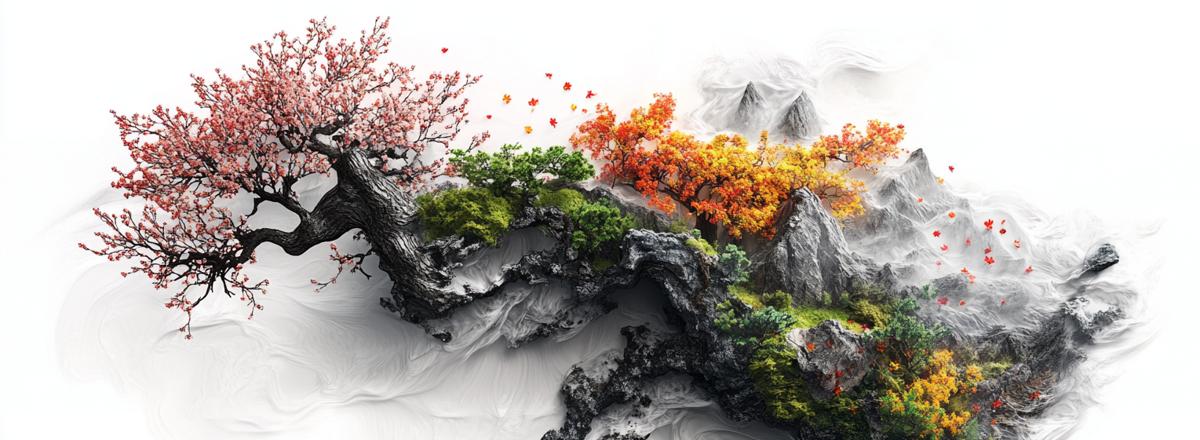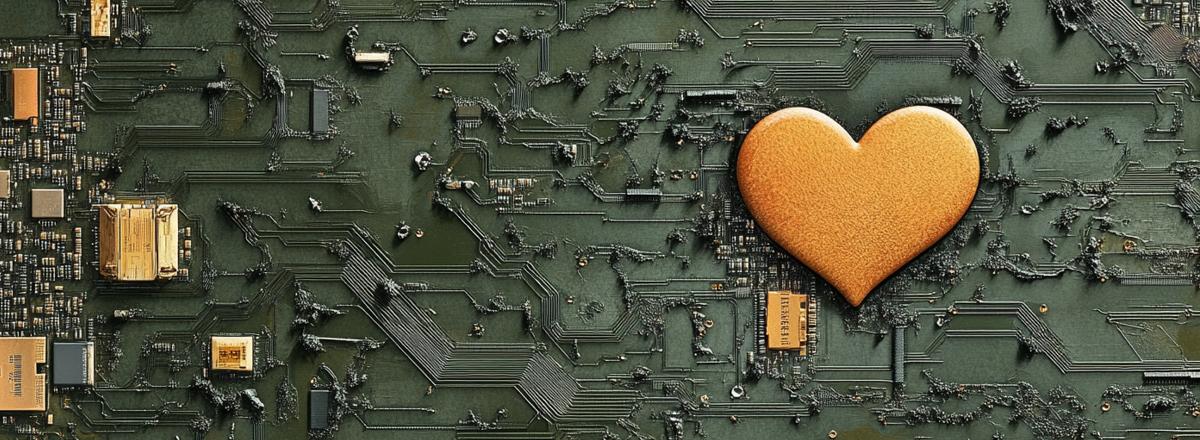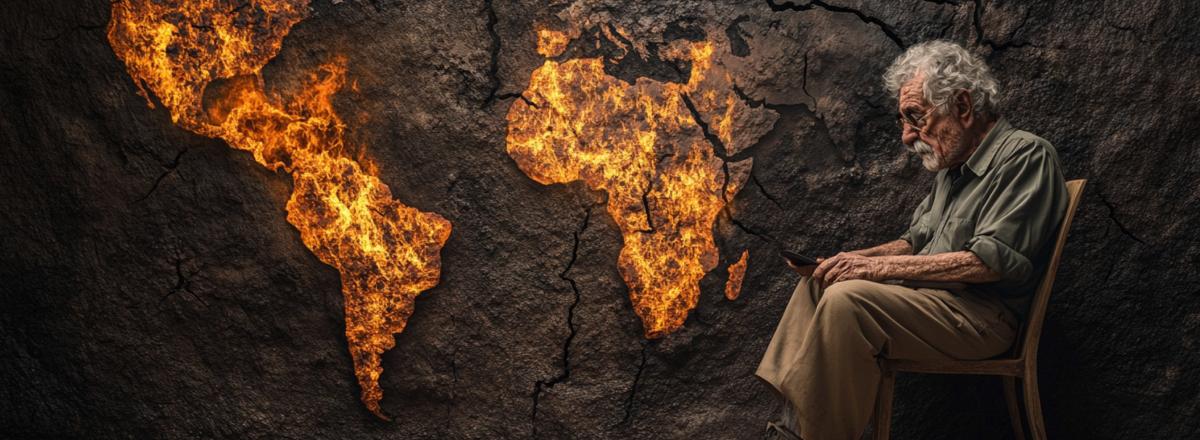Katie Cookies
As a child I would often help my parents bake desserts: cakes, pies, cookies, the occasional empanada. There would be these leftover bits of pie crust or corners of cookie dough strewn across the countertop after each of our creations was placed in the oven. These my mother would gather onto a cookie sheet, cover in cinnamon and sugar, and bake for a few minutes. They were practical and delicious treats that my brother and I were allowed to enjoy immediately. We called them Katie Cookies, after her.
That was 35 years ago. Now, my mother is intentionally dying of thirst. If she succeeds it will bring a peaceful close to a long period of confusion. Dementia and involuntary institutionalization has not been kind to her and the time has finally come for her to end it.
She lives (lived?) in New York State where euthanasia, even in cases like hers, is illegal. She planned for her senior years in advance, insisting she maintain her independence. She even had a Do Not Resuscitate (DNR) tattoo inscribed on her chest in case of becoming incapacitated. The extreme case she so feared never occurred but something more insidious did: her mind slowly decayed. Stubbornly she ignored it during onset, at first claiming aphasia and then turning to outright denial. It was not easy on the family and I sympathize with others facing mental health decline in their own families.
My siblings and I have done our best to accommodate her independence but this year it became clear she needed 24 hour care that we couldn’t provide. After a botched suicide attempt that we were not privy to (pills), she spent a few months in an assisted living home, which for her was a kind of purgatory. She said calmly, “Let’s get rid of me” as I departed after a recent visit. She was a direct woman. A straight shooter. I always appreciated that about her.
A few weeks ago we found out about the VSED program, which is short for Voluntarily Stopping Eating and Drinking. This is a legal, medically monitored way for her to end her suffering. We found a doctor who took her into his care to oversee the process. It won’t be much longer now, assuming she doesn’t turn back at the eleventh hour. I don’t think she will.
She was of Irish descent, raised in a middle class house in Rochester, NY. Her father worked in manufacturing, her mother was a nurse. She attended an orthodox Catholic school but never bought into the mythos of the religion and remained steadfastly opposed to its cultural influences throughout her life. Her skeptical view informed my own, despite my father’s more conventional monotheism.
She followed in her mother’s footsteps, studying nursing. She meet my father, a medical doctor, while working at a hospital. Soon after, they started their family unmarried and unashamed. It was my father’s second brood, with another son from a previous (lawful) marriage recently abandoned. In total they had five of us, two boys and three girls rambling about a small farm in upstate NY.
We called our parents by their first names: Bill (short for William) and Kate (short for Kathleen). This was their bohemian attempt at evening out the inherent asymmetrical distribution of power in the family unit. In some ways it worked. We were home-schooled for most of our elementary curriculum, which further set us apart from our peers who we would later join in public school. Although it was Bill who gave us the lessons, I believe it was she who kept us away from public school as toddlers. For this I am grateful as it allowed space for me to develop my individuality. Later during my teens when I was obsessed with computers, she never scolded me for the long hours spent in the den.
A few memories of childhood arise.
On a rainy September afternoon when I was about eight years old, my parents returned home from an outing with a seven foot spruce lashed to the roof of the minivan. My mother claimed it spoke to her and said it wanted to move. Its name was Madelyn. I watched them dig the hole and set the young tree into the ground over the course of 45 minutes, my little mouth fogging the window. We would all watch Madelyn grow over the years and (I assume all of us at least) reflect on our relationship with the Maternal One.
At nine years old, she slapped me across the face (a very rare occurrence) for throwing out pretzels, shouting that some people didn’t get to eat at all and I was not to ever waste food. In a similar episode she almost made me cook and eat a little bird I had shot with a BB gun. It had been my first time ever firing a “real gun” and I somehow bulls-eyed a sparrow perched on a branch at ten yards on my first shot. Those were harsh lessons I learned well and I appreciate them.
I’ll share a dark memory too. It was soon after my parents divorce. I was thirteen. Late December, freezing cold. She had a small apartment on Keuka Lake with a fake little Christmas tree setup. It was very unlike the big genuine firs we gathered around when the family was whole. It was sad seeing that - the smaller tree, the smaller domicile. It seemed as if she herself had diminished, even as if the family had shriveled and browned like pine needles on the curb.
After the divorce, my mother entered a phase that I would describe as midlife crisis. She started seeing women instead of men, began practicing a form of shamanism that she claimed allowed her to speak with the dead, and changed her name to K’Mara (“Mara is my Wiccan name, it means the moon”). As a thirteen year old this seemed eccentric but also charming and even hip. She was expressing her individuality, which I liked, even if I couldn’t grasp it rationally. Years later, I invited her to speak at my Philosophy of Religion community college class where the professor enthusiastically allowed her to conduct a lecture on power animals, talking plants, and a sort of New Age afterlife. I don’t think most of the class bought into it, but the Q&A session was lively.
I would sometimes engage her in debate, questioning those beliefs she had that were not substantiated by empirical evidence. My personality is wired to apply rational thinking and when extraordinary claims aren’t substantiated by extraordinary evidence, I pass. She laughed off Christian beliefs as outdated superstition, but embraced a vague kind of New Ageism. The cognitive dissonance was strong with her and debate was always useless, but we kept up our thought provoking conversations over the years.
K’Mara liked to be around animals. During my childhood we lived on an active farm that included a pasture of sheep, a coop of chickens and turkeys, a cow in an old red barn, dogs, and several cats. At the time it seemed like an expression of love toward the beasts and I think to her it was just that. I wonder how she felt when she ripped the lambs away from their families for slaughter? If it bothered her, she never mentioned it as we dined on lamb stew. Speaking of which, have you ever seen an amateur chicken slaughter? It’s quite a sight: post decapitation the poor birds sprint, aimless, spouting blood in long red gushes that produce a veritable Jackson Pollock across the lawn. The next step - boiling off the feathers - is as savage as it sounds.
She did a bit of world traveling before she married my father. It was more of a true adventure back then before the Internet, wasn’t it? You had to have some navigation skills and know how to get out of a bind. We recently looked through some of her old photo albums and inquired about her travels through Europe and Hawaii. She didn’t seem to remember most of the places or the people, but it was nice to share that moment of honoring a piece of family history.
She was hard to know well. She later admitted, after her own mother’s death, that she wasn’t physically held as much as she would have liked as a youth. This behavior, this distance between mother and child, was repeated in her own motherhood. It was only after her mental decline that chinks in her emotional armor started to let in some light. She was sweeter to me in her final months than she had been in the previous thirty years. She had always been supportive, but also distant. Early in her decline, I feared her going in the direction of Tony’s mom from The Sopranos, angry and confused, verbally abusing her children during visits. Luckily, we got something else - a sweet old lady.
Throughout my life, especially my formative years, my mother continually reminded me that she loved me, that I was smart and special, and that I could become whatever I wanted to be. She did all of that really well, despite her eccentricities or even coldness. She encouraged my curiosity and uniqueness.
Thinking back on those baking sessions, many of the actual desserts we baked I don’t specifically recall, but I do remember vividly the taste, smell, and texture of those oddly shaped cookies that symbolized practicality and just enjoying the moment.
Thanks for the cookies, Kate.




